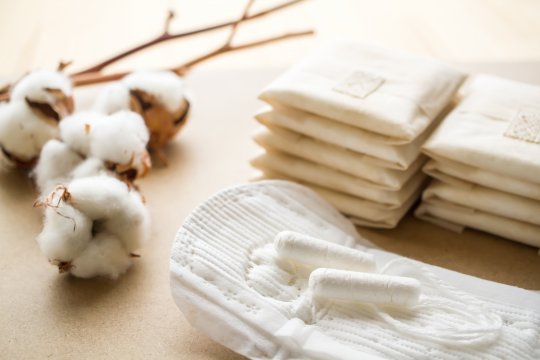Menstruation legislation is underway. It can change lives of many women and girls.

Poland’s first ever menstruation law
Can legal regulations be created for something physiological, such as periods? Yes, it can and even must, considering the survey results. The report from a survey commissioned by the Kulczyk Foundation reveals that every fifth Polish woman has at times not had the money to buy appropriate sanitary products she needs during her period or could only afford products of the poorest quality, which lowers self-esteem and negatively impacts well-being. In the same vein, in a Kantar survey, a whopping 67% of Polish females admit having experienced no access to pads or tampons as school while on their period.
‘Access to menstrual hygiene products is a basic human right. Without it, women and girls cannot live in dignity. It is outrageous that girls and women all over the world have no chance of getting a better education or going to work because they are too poor to menstruate. Action to address that concern has been neglected for too long’, says Dominika Kulczyk, President of the Kulczyk Foundation.
‘Taking care of menstrual health also means caring for the mental health of teen girls. ... Let’s do everything we can to provide them with free access to menstrual hygiene products. It is our responsibility as adults to take care of them’, says Dominika Kulczyk, President of the Kulczyk Foundation.
That is why a draft law on free access to menstrual supplies and education on menstrual health in Polish schools has been created with the support of the Periodic Coalition. Female MPs of the Civic Coalition (Koalicja Obywatelska), Polish People’s Party (PSL) and the Left (Lewica) have endorsed the bill across party lines. ‘We represent different options but we all support the initiative. We will do everything we can to put this bill through. We stand by you’, said MP Marzena Okła-Drewnowicz.
The Periodic Coalition for normalisation of menstruation
For some years now, the Periodic Coalition has been working to counteract period poverty in Poland. Particularly affected are women who have found themselves destitute for a variety of reasons: those in abusive relationships, those who have lost their jobs or are divorced and raising children alone as well as those incarcerated in prison. In such facilities, women receive 20 pads (normally the poorest quality ones) for the standard 5 to 7 days of monthly period and have limited access to a toilet, shower or pain relievers ... A report for the Kulczyk Foundation further reveals that other women experience difficulties to pay for hygiene products; f4% declare that they have had a situation in their live when they could not afford to buy sanitary pads. Considering the implications of that situation (being forced to stay at home, staying away from social or professional activity, shame, etc.), this is 4% too many.
‘We have provided over 12 million period products to schools, hospitals, children’s homes, day care centres, social welfare centres and facilities for people in the homelessness crisis. Sanitary pads or tampons provided under this initiative are also used at transport stations, at reception points and accommodation facilities where refugees are staying’, says Dominika Kulczyk.
Providing hygiene products is not the only objective of the Periodic Coalition. The member organisations and experts engage in efforts in a bid to normalise menstruation in public discourse and educate on menstrual health. Even though it is the 21st century and we have started a public discussion whether artificial intelligence is a threat to humanity or not, we are still unable to openly talk about menstruation, a physiological process involving half the population around the globe. This is evident from a report by Difference, a research company; a whopping 41% of interviewees do not talk about having periods in their households, which is why teenagers associate it with something shameful, with half of teenage girls having a negative attitude towards periods. The same proportion of young girls have missed school at least once because of their period!
The Periodic Coalition prevents period poverty, removes the taboo around menstruation and educates on menstrual health.
The Periodic Coalition has initiated a draft law on free access to menstrual supplies in Polish schools. Over 12 million period products have been provided by the Periodic Coalition to schools, hospitals, children’s homes, day care centres, social welfare centres and facilities for people suffering the homelessness crisis.
This shows the relevance of the Periodic Coalition’s work. It has been recognised during Impact’23, a prestigious conference of representatives of business, science and politics. The Coalition has won the money.pl Editorial Board’s Special Award for unique social contribution.
If you want to contribute to the fight against period poverty, visit TakDlaPodpasek.pl and sign the petition to fund sanitary pads in Polish schools. Polish women will be grateful to you.
Paulina Kurowska-Ciupka
More about the programme: http://takdlapodpasek.pl
The text was published on https://takdlapodpasek.wp.pl/

